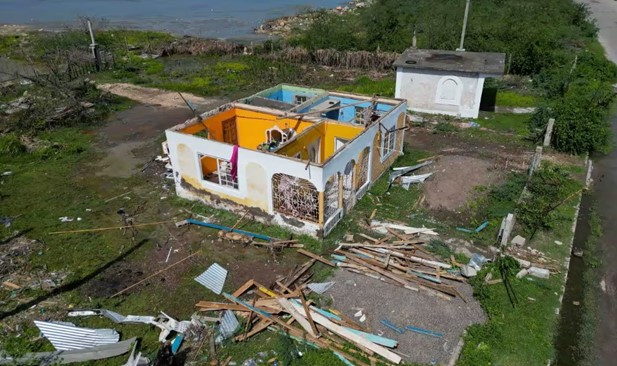
Caribbean Nations Seek Greater Accountability from Major Emitters for Climate Damages
Caribbean nations hope that a landmark international court case on climate obligations will strengthen their ability to claim damages from developed countries after natural disasters. The case, brought to the International Court of Justice (ICJ) by the United Nations General Assembly, aims to clarify state liabilities related to climate change. This case has garnered significant attention, with a record 91 written submissions set to be reviewed in a pivotal oral hearing in The Hague this December.
While the ICJ's advisory opinion will not directly target specific emitters, Nikki Reisch, a human rights and global justice lawyer, emphasized that the ruling could fortify the legal groundwork for holding countries accountable for environmental damage. Reisch stated, "As an authoritative interpretation of states' obligations under binding international law, the ICJ's advisory opinion will undoubtedly influence the rising tide of climate litigation around the world."
Caribbean leaders, dealing with increasingly severe storms like Hurricanes Maria, Irma, Dorian, and Beryl, express frustration over years of unsuccessful diplomacy. Ryan Pinder, Attorney General of the Bahamas, where Hurricane Dorian caused significant destruction, lamented that at least 40% of the country's current debt stems from rebuilding after climate-related disasters. Pinder stressed the need for financial accountability from major emitters, stating, "We have tried diplomacy for many years... but the results are minimal. We firmly believe that real impact requires hitting where it hurts the most – the pocketbooks."
While the Bahamas is unlikely to sue a specific developed country, Pinder believes the ICJ case could lead to financial relief for Caribbean economies, possibly through debt forgiveness or a global environmental tax on developed nations. The Bahamas, along with seven other Caribbean countries, has appealed to the ICJ for a favorable outcome that would strengthen their legal position in climate-related claims.
Notably, Grenada and St. Vincent and the Grenadines, still recovering from the devastation of Hurricane Beryl, have also made submissions to the ICJ. Justin Sobion, an international environmental lawyer coordinating these submissions, highlighted that the Caribbean seeks a strongly worded opinion from the ICJ to help break the "vicious cycle of debt" caused by repeated natural disasters.
Sobion also addressed criticisms regarding the ICJ's jurisdiction, arguing that the case's referral to the court was agreed upon by consensus at the UN General Assembly, making objections to its jurisdiction inaccurate.
As the oral hearings approach in December, Caribbean leaders continue to seek support from developed nations. Recently, leaders from Grenada, St. Vincent and the Grenadines, and Antigua and Barbuda urged the UK government to back a "Marshall Plan" to rebuild their economies after major hurricanes. British Chancellor Rachel Reeves responded by pledging to work with international partners to deliver coordinated support on debt and strengthen resilience in vulnerable countries.